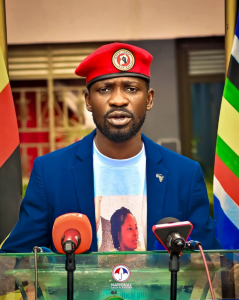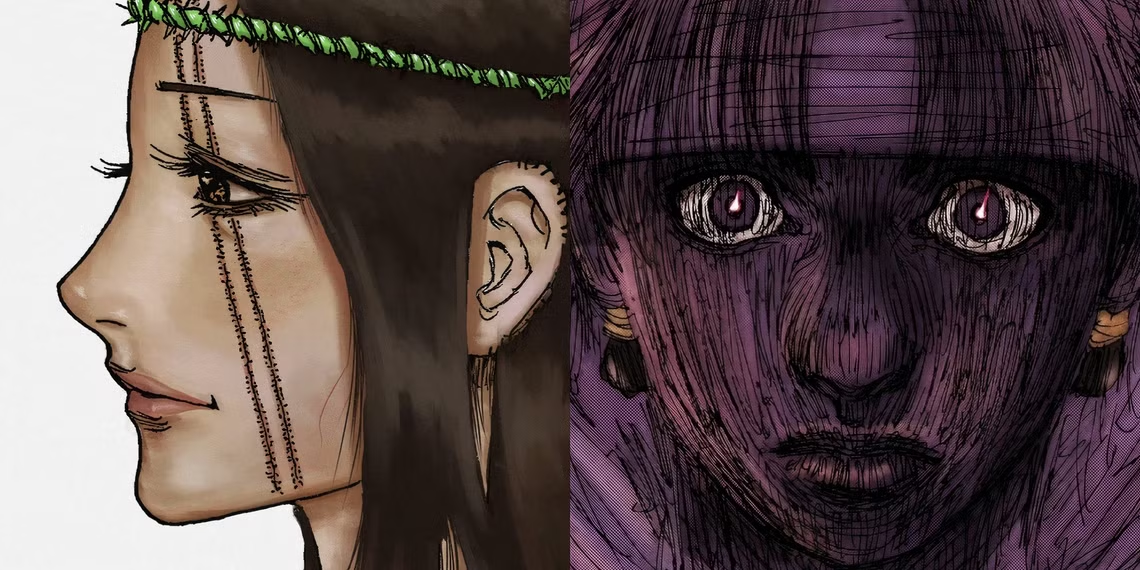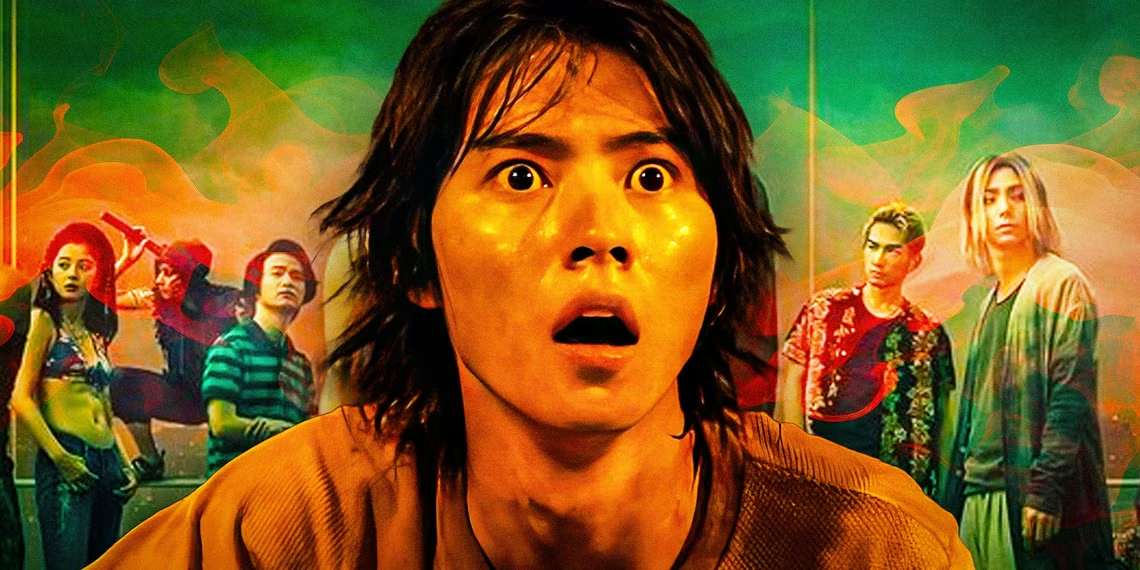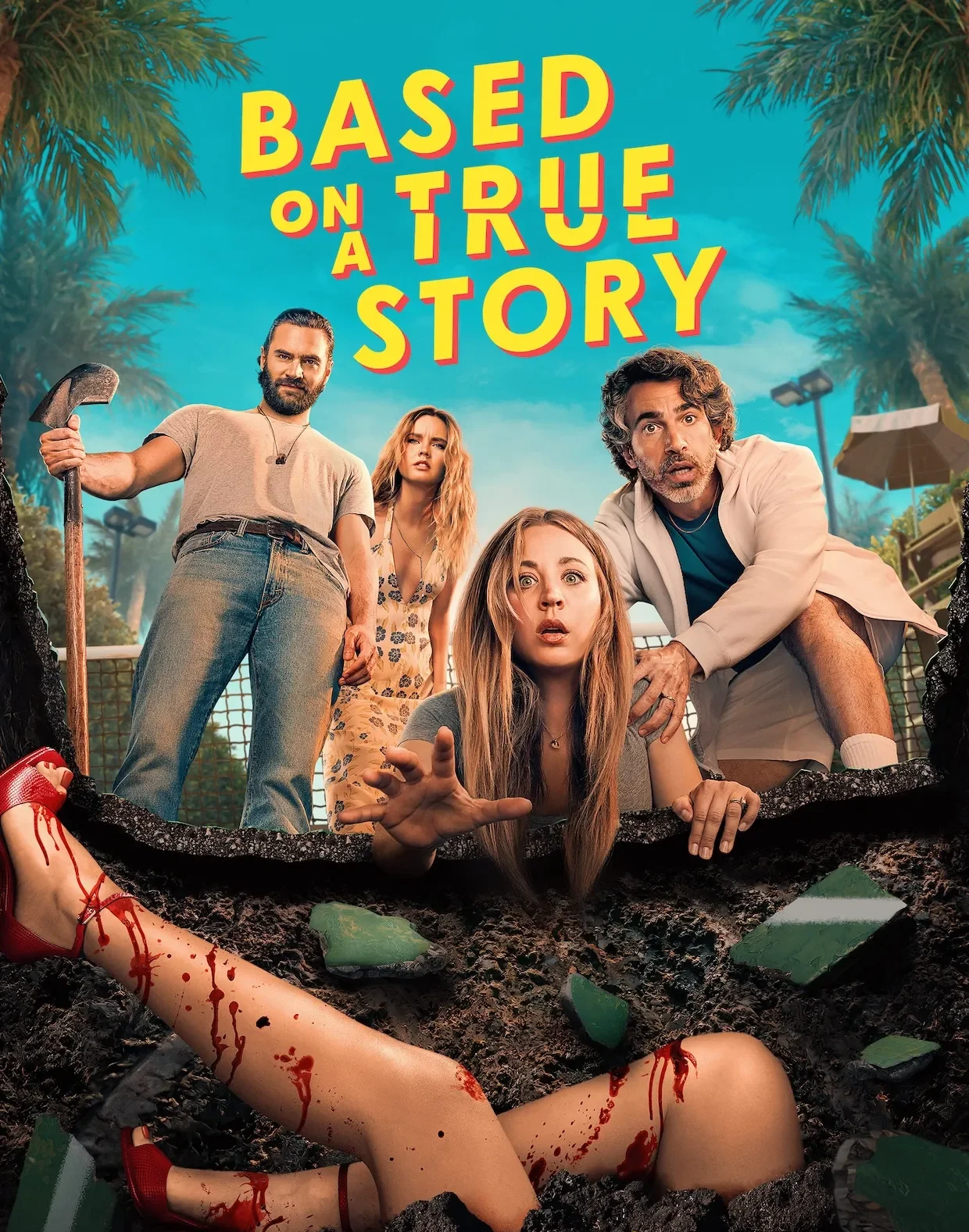Photos: Facebook\Wikimedia Commons
The week after Africa’s most vicious and corrupt dictator Gen. Yoweri Museveni hosted foreign dignitaries for the Non-Aligned Movement (NAM) summit in Uganda, the documentary film that exposes all of his regimes’ atrocities and lies—“Bobi Wine, The People’s President”—has been nominated for Best Picture honors in this year’s Oscars.

In a brief statement to Black Star News via WhatsApp Robert Kyagulanyi, a.k.a. Bobi Wine said: “I am really humbled by the nomination, and I hope the Ugandan story gets more exposure.”
Security forces are currently hunting down Bobi Wine on the streets of Kampala. The Museveni military regime, fearing he’d organize protests during the NAM summit and the Group of 77 meetings in Uganda surrounded his home with troops. Yet, he somehow slipped away from home and has been posting videos of himself interacting with ordinary Ugandans on the streets, in church; or helping to plant banana trees in the massive potholes that pock-mark Kampala’s roads.
The documentary, “The People’s President” (National Geographic, 2023, directed by Moses Bwayo and Christopher Sharp; 1h 45m) highlights the struggle of Ugandans against 38 years of Western-financed military dictatorship. The West gets Museveni to do its dirty work, like deploying troops to war-torn Somalia on behalf of the U.S. which fears collapse there could embolden Islamic radicals. So Museveni gets a blank check on corruption and atrocities in Uganda and in neighboring countries. He invaded Rwanda in 1990, Congo multiple times since 1996, and South Sudan in 2013, leaving millions of deaths, and much misery and destruction behind.
When Gen. Museveni seized power in 1986, he was a slim and charismatic fighter who charmed the country with rosy promises—not the grumpy, pudgy, tyrant he’s become. Uganda was reeling and exhausted from six years of civil war, which, ironically, was launched by Museveni after his party’s poor performance in 1980’s presidential elections.
Civilians bore the brunt, including many thousands in the Luwero district of Uganda in Buganda region. Many were massacred by men in government army uniforms. Later, it was revealed that many of killings were committed by Museveni’s National Resistance Army (NRA) fighters. They wore uniforms of government soldiers they’d killed. Museveni’s Machiavellian scheme turned the population in Buganda against Milton Obote’s government. With strong support from Buganda region Museveni seized power in 1986.
When he was sworn in on the steps of Parliament Museveni promised “fundamental change” and said: “The problem of Africa in general and Uganda in particular is not the people, but leaders who want to overstay in power.” These were magical words to the ears of Ugandans.
Thirty-eight years later, Museveni still holds power, a full-blown military dictator.
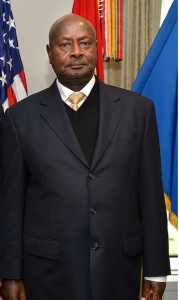
Museveni conducts sham elections every five years. He appoints the election commission. When newly-minted candidate Bobi Wine defeated him in the 2021 vote he simply refused to yield power and his commission declared him the victor. Museveni had shut down the Internet during the vote meaning results couldn’t be transmitted from polling stations. When an Al Jazeera reporter asked an election official how they were able to receive election data without the Internet he was essentially told “We will get back to you.” Even Museveni’s puppet masters in the U.S. declared that the vote was “neither free, nor fair” in a statement that remains on the website of the State Department.
Museveni continued the deception and lies he’d perfected in Luwero. He ditched the government of National Unity that he’d formed after seizing power. He urinated on Uganda’s constitution, first removing presidential term limits, and later, the 75-years-old age ceiling for presidential candidates.
Bobi Wine was only four year old when Museveni seized power. Bobi Wine was a 36 year old Member of Parliament by 2018 when Museveni had his lackeys in Parliament remove the age limit. This paved the way for the aged dictator to run in 2021.
“The People’s President” picks up the story from around 2018, as Bobi Wine, who had resoundingly defeated a Museveni candidate to get elected to Parliament, leads the resistance against the removal of age limits. Ultimately, Museveni got his way and his “Yes Man” Members of Parliament from the ruling National Resistance Movement (NRM) voted to abolish the 75-years-old age ceiling.
Leading the resistance solidified Bobi Wine’s revolutionary credentials. The popular chant around the country became: “People Power, Our Power! Our Power, People Power!” He had the Midas touch. Candidates he endorsed for Parliament were swept into office. The battle lines were drawn in August 2018 in the city of Arua. Bobi Wine went to campaign for an opposition party candidate in a by-election for a vacant Parliamentary seat. Museveni also travelled there to campaign for an NRM candidate. The dictator saw the writing on the wall. The color red—which represented the “People Power Movement” led by Bobi Wine—was everywhere. Yellow, the ruling party’s colors, was nowhere to be seen.

Dictator Museveni panicked and ordered the Special Forces, commanded by his son, Gen. Muhoozi Kaenerugaba, to unleash chaos. Opposition party rallies were violently disrupted and people brutalized. Bobi Wine’s friend and driver, seated on the passenger’s side of his vehicle, was shot and killed. The bullets were likely intended for Bobi Wine who happened not to be in the vehicle. Bobi Wine was detained and brutally tortured by security forces. The opposition candidate was also arrested yet still won from behind bars.
Protests in Uganda and by Ugandan diaspora led to international demands for Bobi Wine’s release. He was freed and traveled to the U.S. for medical treatment. When he returned to Uganda, still on crutches, he’s become the face of the demand for change. “The People’s President” shows how his following kept growing—his music denounced Museveni’s corruption and tyranny, while his other songs educated people on how to protect themselves from the Covid pandemic
Eventually he announced that he would run for president in 2021 under the umbrella of a new party, National Unity Platform (NUP).
State-sponsored violence was unleashed against Bobi Wine and NUP. More than 150 of his supporters were massacred in November 2020 after protests broke out when he was arrested; even the government admitted to the killings, downplaying
the numbers to 54 victims. Throughout the campaign Bobi Wine and his associates were constantly ducking bullets—some of his aides were shot and seriously wounded as the documentary shows—or being constantly arrested and thrown behind bars.
Judging by the massive turnouts at his campaign events, compared to the paltry numbers at dictator Museveni’s rallies, it was very clear who’d actually win the 2021 presidential vote. Even the U.S., a reliable supporter of the puppet dictator Museveni, issued a statement that remains on the website of the State Department that the elections were “neither free, nor fair.”
Yet dictator Museveni controlled the army and so he remains in power in Uganda. He receives about $1 billion in U.S. taxpayers’ money annually to support his kleptocratic and violent dictatorship. In the aftermath of the 2021 vote, he launched a campaign of retribution, kidnapping, torturing and killing young people—merely on suspicion of being a supporter of Bobi Wine and NUP.
It was a great disappointment to many Ugandans when none of the global leaders, including UN Secretary General Antonio Guterres, who travelled there for the NAM and the G77 meetings, said a word about the ongoing atrocities under Museveni’s tyranny.
The richly-deserved Oscar nomination for “The People’s President”—not the mirage presented by the regime during the summit hosted by Museveni—will let the world and ordinary Americans know more about what monstrous regime their tax dollars subsidizes in Uganda. Last year, 18.7 million people watched the Oscars, according to ABC Television.
